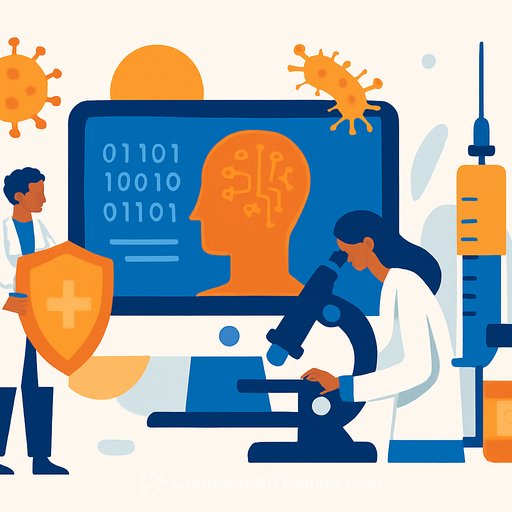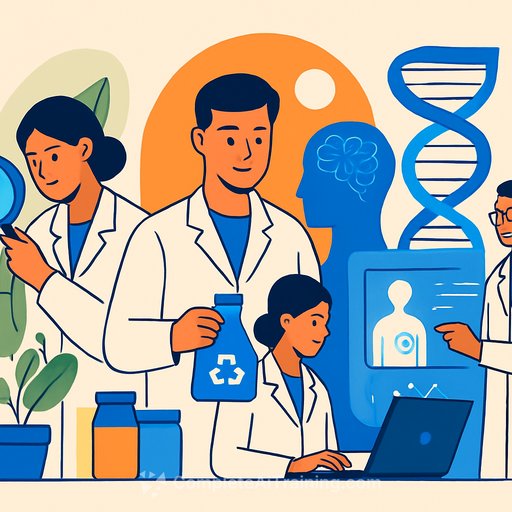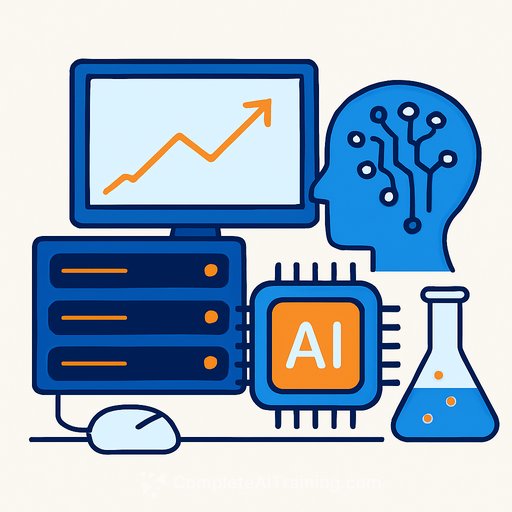University of Oxford Launches AI-Driven Vaccine Research Program with Ellison Institute of Technology
The University of Oxford has secured £118 million in funding to support a new vaccine research initiative in partnership with the Ellison Institute of Technology (EIT). This program targets the development of vaccines that address some of the most persistent infectious diseases affecting global health.
Central to this project is the Oxford Vaccine Group, part of the university’s Department of Paediatrics. The initiative, named CoI-AI (Correlates of Immunity-Artificial Intelligence), combines Oxford’s expertise in human challenge studies and immunology with EIT’s advanced artificial intelligence (AI) capabilities. This collaboration is set to improve how vaccines are designed by better identifying immune responses that protect against infection.
Focus on Challenging Pathogens and Antibiotic Resistance
The research targets bacteria known for causing severe infections and antibiotic resistance, including Streptococcus pneumoniae, Staphylococcus aureus, and Escherichia coli. Researchers will use human challenge models, exposing volunteers to these bacteria under controlled conditions to study immune reactions in real time.
By integrating immunology with AI, the team aims to pinpoint which immune responses indicate protection. This approach could lead to more effective vaccines designed to combat resistant strains and reduce infection rates.
Strategic Alliance for Long-Term Impact
Announced in December 2024, the Oxford-EIT partnership extends beyond vaccine development. It focuses on fostering innovation across fields like clinical medicine, generative biology, plant science, sustainable energy, and public policy. The alliance also includes a Scholars program to support emerging scientific leaders.
Oracle supports the project with high-performance computing infrastructure, while EIT contributes a leading AI team. This combined effort is expected to accelerate vaccine discovery and improve responses to infectious disease outbreaks globally.
Key Insights from Project Leaders
- Professor Andrew Pollard, Director of the Oxford Vaccine Group: “This programme addresses one of the most urgent problems in infectious disease by helping us to understand immunity more deeply to develop innovative vaccines against deadly diseases that have so far evaded our attempts at prevention. By combining advanced immunology with artificial intelligence, and using human challenge models to study diseases, CoI-AI will provide the tools we need to tackle serious infections and reduce the growing threat of antibiotic resistance. This is a new frontier in vaccine science.”
- Professor Daniela Ferreira, Deputy Director of the Oxford Vaccine Group: “This programme will give us completely new tools to study how vaccines work at both a cellular and system-wide level, by studying infections in real time, in people, and using smart immunology tools and data to find the answers. This will open up whole new avenues to vaccine design as we improve our understanding of infection and immunity.”
- Larry Ellison, Chairman of the Ellison Institute of Technology: “Researchers in the CoI-AI programme will use Artificial Intelligence models developed at EIT to identify and better understand the immune responses that predict protection. This vaccine development programme combines Oxford’s leadership in immunology and human challenge models with cutting-edge AI, laying the groundwork for a new era of vaccine discovery – one that is faster, smarter, and better able to respond to infectious disease outbreaks throughout the world.”
- Professor Irene Tracey, Vice-Chancellor of the University of Oxford: “This is a major step forward in our strategic alliance with the Ellison Institute. Together, we’re combining Oxford’s strengths in vaccine science with EIT’s bold vision to tackle some of the toughest problems in global health. This is about drawing more talent and capacity to the Oxford ecosystem to turn scientific challenges into real solutions for the world.”
This initiative exemplifies how combining immunology with AI can enhance vaccine research and development. For professionals interested in AI applications in science, resources on AI courses for researchers may offer valuable insights into emerging technologies shaping biomedical research.
Your membership also unlocks:





